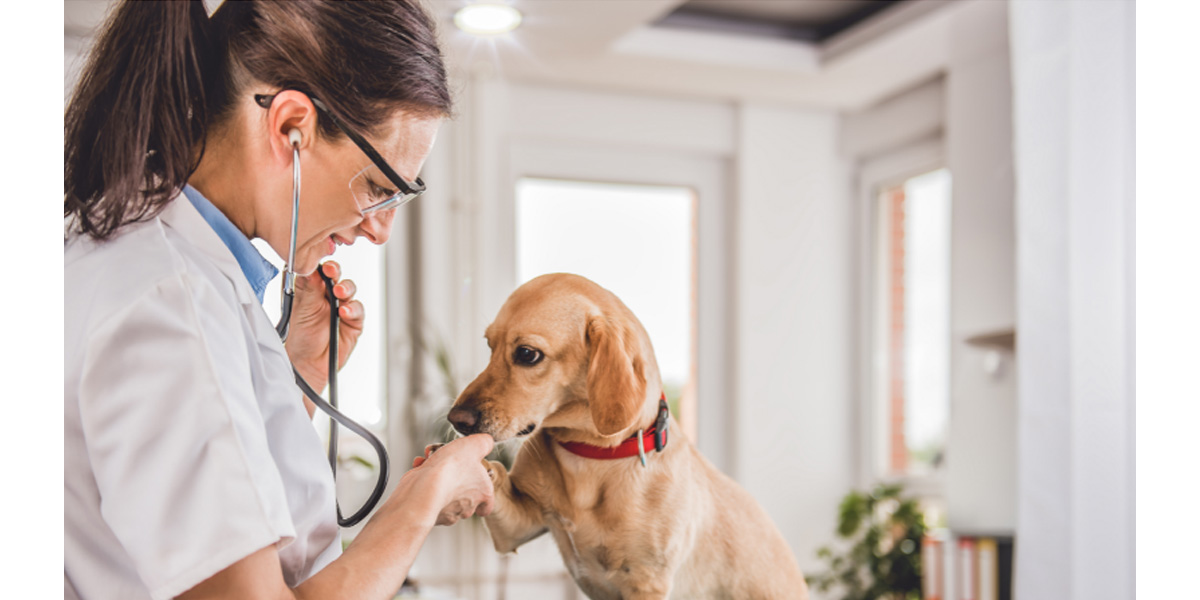Reducing Anxiety of Veterinary Visits in Dogs and Cats
Doctor of Veterinary Medicine

While efforts are made to answer all questions as quickly as possible, if an immediate answer is required or if your pet is in need of urgent or emergency care, contact your pet's veterinarian immediately.
Doctor of Veterinary Medicine

You will receive an answer from Dr. Lindsay and our vet/tech team as soon as possible, usually the same day.
All answers are provided for informational or educational purposes only, and are intended to be a supplement to, and not a substitute for, the expertise and professional judgment of your pet's veterinarian.
It may be necessary to consult your pet's veterinarian regarding the applicability of any opinions or recommendations with respect to your pet's symptoms or medical condition.
CloseDoctor of Veterinary Medicine

An error has occurred, please reload the page and try again.
CloseWhile efforts are made to answer all questions as quickly as possible, if an immediate answer is required or if your pet is in need of urgent or emergency care, contact your pet's veterinarian immediately.
There is no answer related to your question

Picture this: the sun is shining, the birds are singing, it's Veterinary Visit Day, and everyone is calm, collected, and maybe a little excited to see their favorite veterinarian. Taking your pet to the veterinarian is as important as it is inevitable, but your pet shaking in his or her boots on the way there doesn't have to be.
There are variety of causes of anxiety in pets, one of them being separation anxiety. Likewise, a substantial number of pets experience high levels of stress, anxiety, and fear when going to the veterinarian. It's pretty understandable though. A car ride alone can be stressful for a pet. Follow that up with walking into a building filled with many different scents of other animals and people can also induce anxiety in many cats and dogs. Then, top that off with your pet being poked and prodded in places where the sun doesn't shine by unfamiliar hands and you've got an overwhelmed and possibly scared pet on your hands.
Signs your dog is scared, stressed, or anxious
- Trembling
- Tucked tail
- Hiding
- Trying to escape
- Licking and biting self
- Diarrhea
- Aggression
Signs your cat is scared, stressed, or anxious
- Diarrhea
- Excessive grooming/scratching
- Hiding
- "Talking" or excessive vocalization
- Aggression
- Dilated pupils
- Ears laid back
- Heavy, open-mouthed breathing
Preventative measures to help your pet become accustomed to a veterinarian visit
Reducing your pet's anxiety is not an easy task. With just a few preventative steps, you can hopefully ease your pet's anxiety when going to the veterinarian and make it a positive experience for you and your pet! For both cats and dogs, if possible, take them into the veterinarian's office to just say hello, get treats and meet the doctor and receptionists. This can help your pet get familiar with the surroundings, smells, and people, and break the association of the office with fear. Another preventative measure could be to make your pet feel comfortable with their crate. With some pets, cats especially, just the sight of the crate will induce fear. A few days before your pet's veterinary appointment, set out your pet's crate in an area your pet spends a lot of time. Leave the door open and encourage them in there with treats and toys. Additionally, trying to get an appointment during quieter, less busy hours could significantly help with the lack of other animals around to spook your pet.
Natural anxiety and stress remedies for your pet
For some pets, all they need is a little "oomph" to relax. If your cat is showing signs of stress prior to leaving for the veterinary appointment, spray a towel with Feliway and cover the crate with it. The spray will emit a comforting pheromone that will reduce stress-related behavior. For dogs, use the Adaptil Spray on a towel over the crate for the same effect. Other natural products that can help calm your pets include homeopathic remedies and a Thundershirt, which gives your pet the supportive feeling of being held.
Anxiety medications for severe anxiety
If your pet is petrified and cannot seem to relax, talk to your veterinarian. He or she may prescribe an anxiety medication to help your pet. Giving your pet anxiety medications, such as Gabapentin or Clomicalm, before going to the veterinarian's office can significantly reduce your pet's stress and alleviate any fears your pet experiences. Pet anxiety medications can help reduce unwanted behaviors and aggressions like excessive barking or other destructive tendencies.
 Swipe
Swipe


































